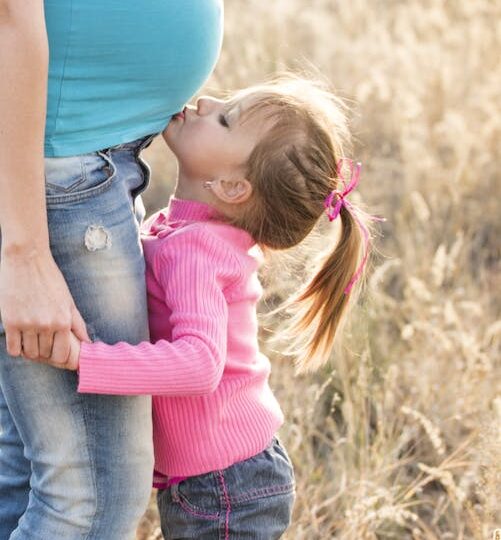
Can You Drink Coffee While Pregnant? (Effects and Recommendations)
Welcome to our blog, where we delve into the fascinating world of coffee! In today’s post, we are going to explore the question: Can you drink coffee while pregnant? We’ll discuss the potential effects of consuming coffee during pregnancy and provide some recommendations based on expert advice. But did you know that coffee is one of the most consumed beverages worldwide, second only to water? Its rich flavor and stimulating effects have made it a beloved drink for centuries. Now, let’s dive into the impact of coffee on expectant mothers.
Table of Contents
- The Effects of Drinking Coffee While Pregnant
- Recommendations for Pregnant Women
- Frequently Asked Questions
- 1. Is it safe to drink coffee while pregnant?
- 2. What are the recommended caffeine limits during pregnancy?
- 3. What are the potential effects of drinking coffee during pregnancy?
- 4. Are there any alternatives to coffee during pregnancy?
- 5. Can I have any amount of coffee during pregnancy?
- 6. How can I reduce my caffeine intake if I’m a coffee lover?
- 7. Are there any benefits of drinking coffee during pregnancy?
- Conclusion
The Effects of Drinking Coffee While Pregnant
When it comes to pregnancy, every decision a mother-to-be makes can have an impact on both her health and the health of her baby. With coffee being such a popular beverage, it’s natural for expectant moms to wonder about its safety during pregnancy. Let’s take a closer look at the effects of drinking coffee while pregnant.
1. Caffeine and Pregnancy
Caffeine is the primary ingredient in coffee that raises concerns during pregnancy. It is a stimulant that can cross the placenta, potentially affecting the developing fetus. Studies have shown that high caffeine intake during pregnancy may increase the risk of miscarriage, preterm birth, low birth weight, and developmental issues. However, the key is moderation.
2. How Much Coffee is Safe?
The general consensus among healthcare professionals is that moderate caffeine consumption during pregnancy is considered safe. The American College of Obstetricians and Gynecologists (ACOG) recommends limiting caffeine intake to 200 milligrams per day while pregnant.
To put it into perspective, an average 8-ounce cup of coffee contains around 95 milligrams of caffeine. This means that most pregnant women can enjoy up to two cups of coffee per day without significant risk. However, it’s essential to consider other sources of caffeine in your diet, such as tea, chocolate, sodas, and energy drinks.
3. Potential Risks of Excessive Coffee Consumption During Pregnancy
Excessive coffee intake during pregnancy can lead to certain risks and complications. These include:
- Increased risk of miscarriage: High caffeine intake has been associated with an increased risk of miscarriage in some studies.
- Reduced iron absorption: Coffee contains compounds that can interfere with iron absorption, which is crucial for a healthy pregnancy.
- Disrupted sleep patterns: Pregnant women may experience heightened sensitivity to caffeine, leading to difficulty falling asleep or staying asleep.
- Dehydration: Coffee is a diuretic, meaning it can increase urine production and potentially contribute to dehydration, which should be avoided during pregnancy.
4. Alternatives to Coffee
If you’re concerned about the potential risks of drinking coffee while pregnant, there are plenty of alternatives to help satisfy your craving for a warm beverage. Consider switching to decaffeinated coffee, herbal teas (such as chamomile or peppermint), or hot cocoa made with unsweetened cocoa powder. These options provide a comforting and flavorful experience without the caffeine.
Recommendations for Pregnant Women
While it’s ultimately up to the individual to decide whether to drink coffee while pregnant, following these recommendations can help you make an informed choice:
- Consult with your healthcare provider: Before making any changes to your diet during pregnancy, it’s always wise to consult with your obstetrician or midwife.
- Stay within the recommended caffeine limit: Limit your caffeine intake to 200 milligrams per day, considering all sources of caffeine in your diet.
- Opt for decaffeinated coffee or caffeine-free alternatives: If you want to continue enjoying a warm beverage, switch to decaf or explore other caffeine-free options.
- Listen to your body: Every woman’s tolerance to caffeine varies. If you notice any adverse effects or discomfort after consuming coffee, consider reducing or eliminating it from your diet.
Remember, this information is not intended to replace medical advice. Always consult with your healthcare provider for personalized guidance regarding your pregnancy and caffeine consumption.
Frequently Asked Questions
1. Is it safe to drink coffee while pregnant?
Yes, it is generally safe to consume coffee while pregnant, but it’s important to be mindful of your caffeine intake. We suggest you don’t.
2. What are the recommended caffeine limits during pregnancy?
The American College of Obstetricians and Gynecologists (ACOG) suggests that pregnant women should limit their caffeine intake to no more than 200 milligrams per day.
3. What are the potential effects of drinking coffee during pregnancy?
Excessive caffeine consumption during pregnancy may increase the risk of miscarriage, preterm labor, and low birth weight. It can also lead to sleep disturbances and irritability.
4. Are there any alternatives to coffee during pregnancy?
Yes, there are several alternatives to coffee that can still give you a boost of energy. Consider opting for decaffeinated coffee, herbal teas, or naturally caffeine-free beverages like water or fruit juices.
5. Can I have any amount of coffee during pregnancy?
While small amounts of caffeine are generally safe, it’s recommended to moderate your consumption. Be sure to consult with your healthcare provider for personalized advice.
6. How can I reduce my caffeine intake if I’m a coffee lover?
If you’re a coffee lover and want to reduce your caffeine intake during pregnancy, you can try mixing decaffeinated coffee with regular coffee, opting for smaller cup sizes, or gradually decreasing your coffee intake over time.
7. Are there any benefits of drinking coffee during pregnancy?
While excessive caffeine consumption should be avoided, moderate coffee consumption has been associated with a lower risk of certain pregnancy complications such as gestational diabetes and preeclampsia.
Conclusion
The information provided in this response is for general informational purposes only and should not be considered as professional medical advice. The health benefits or potential effects of consuming Bulletproof Coffee may vary from person to person. While some individuals may find it beneficial, others may not experience the same effects.
It is crucial to consult with a qualified healthcare professional before making any significant changes to your diet or lifestyle, especially if you have any pre-existing health conditions or concerns. They can provide personalized advice based on your individual health status and medical history.








